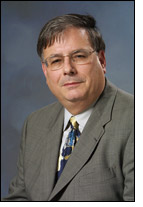 Today marks the seventh anniversary of the death of Dean Howard B. Eisenberg, on June 4, 2002. This means that Howard has been gone from the Law School longer than he was here, for he served as dean just a month shy of seven years. Yet, in some metaphysical but important sense, I do not believe him to be gone. His “ideals and [his] spirit,” to return to words that I used in 2002 (and that I borrowed from the opening page of the Marquette Law Review in 1916), continue to suffuse-indeed, guide-much of what Marquette University Law School does, even (or especially) with respect to initiatives that we have started since Howard’s death. To be sure, I appreciate that not all who read this blog knew Howard. Therefore, on behalf of the Law School, I warmly invite you to spend a few moments perusing the memorial issue of the Law Review that we published in 2002. It is a remarkable book, containing essays by more than 50 individuals who knew Howard in different parts of his life: the contributors were classmates, professors, fellow lawyers, judges, clients, university colleagues, relatives, students, and others. The memorial issue also contains several of Howard’s speeches, including “What’s a Nice Jewish Boy Like Me Doing in a Place Like This?”
Today marks the seventh anniversary of the death of Dean Howard B. Eisenberg, on June 4, 2002. This means that Howard has been gone from the Law School longer than he was here, for he served as dean just a month shy of seven years. Yet, in some metaphysical but important sense, I do not believe him to be gone. His “ideals and [his] spirit,” to return to words that I used in 2002 (and that I borrowed from the opening page of the Marquette Law Review in 1916), continue to suffuse-indeed, guide-much of what Marquette University Law School does, even (or especially) with respect to initiatives that we have started since Howard’s death. To be sure, I appreciate that not all who read this blog knew Howard. Therefore, on behalf of the Law School, I warmly invite you to spend a few moments perusing the memorial issue of the Law Review that we published in 2002. It is a remarkable book, containing essays by more than 50 individuals who knew Howard in different parts of his life: the contributors were classmates, professors, fellow lawyers, judges, clients, university colleagues, relatives, students, and others. The memorial issue also contains several of Howard’s speeches, including “What’s a Nice Jewish Boy Like Me Doing in a Place Like This?”
My favorite words in the issue are not my own or even Howard’s. They come from Professor Walter J. Dickey of the University of Wisconsin Law School. Professor Dickey did not suggest that he had known Howard as well as had some of the other essayists. But, after recounting some common experiences, Professor Dickey captured this essential aspect of the man:
Here is how I would characterize these several interactions with Howard. While he was aware of the “politics” of issues, the core of his concern was with substance. His attention and talent were invariably focused on the substantive issue. He had a keen desire to discover what the right thing was to do and to do it. He was well prepared, and he always followed up with a high-quality execution of whatever idea required implementation. Not much for speeches, not a lot of noble talk. He just did. This was not just his job, this was his duty. He would do it as well, as honorably, and in as straightforward a fashion as he could. If some of the causes he advocated were out of favor in the brittle world of politics, he did not apologize or even explain why he was advancing the cause or position he stood for. His expectation was that others would and should know that what he did was to fulfill the responsibility of the legal profession. His expectations brought out the best in others.
While Howard surely had passion for what he did, it was his business-like, matter-of-fact, direct approach which most impressed me. He channeled his passion, his concern and caring for others, in ways that were likely to be effective for those he sought to help. Howard possessed the qualities of a good lawyer. No cause in which he believed was either too large or too small for his attention. For me, he is a model of the best in the legal profession.
I invite you to reread the quotation-there is much wisdom in it-and, particularly, to note the present tense in Professor Dickey’s final sentence.

Thank you Dean Kearney for remembering Dean Eisenberg and honoring his memory today with your blog. He was an inspiration & mentor to me throughout law school. I can still see him sitting at his computer, Cubs tie on (Cubs jacket hanging up)eager to discuss anything from criminal law to what he was educating Channel 12 camera crews on from the previous evening broadcast. Sometimes they were the same thing. Thank you Howard for always inspiring me, believing in me (along with many, many others) and giving so much of yourself to the law. You are missed.